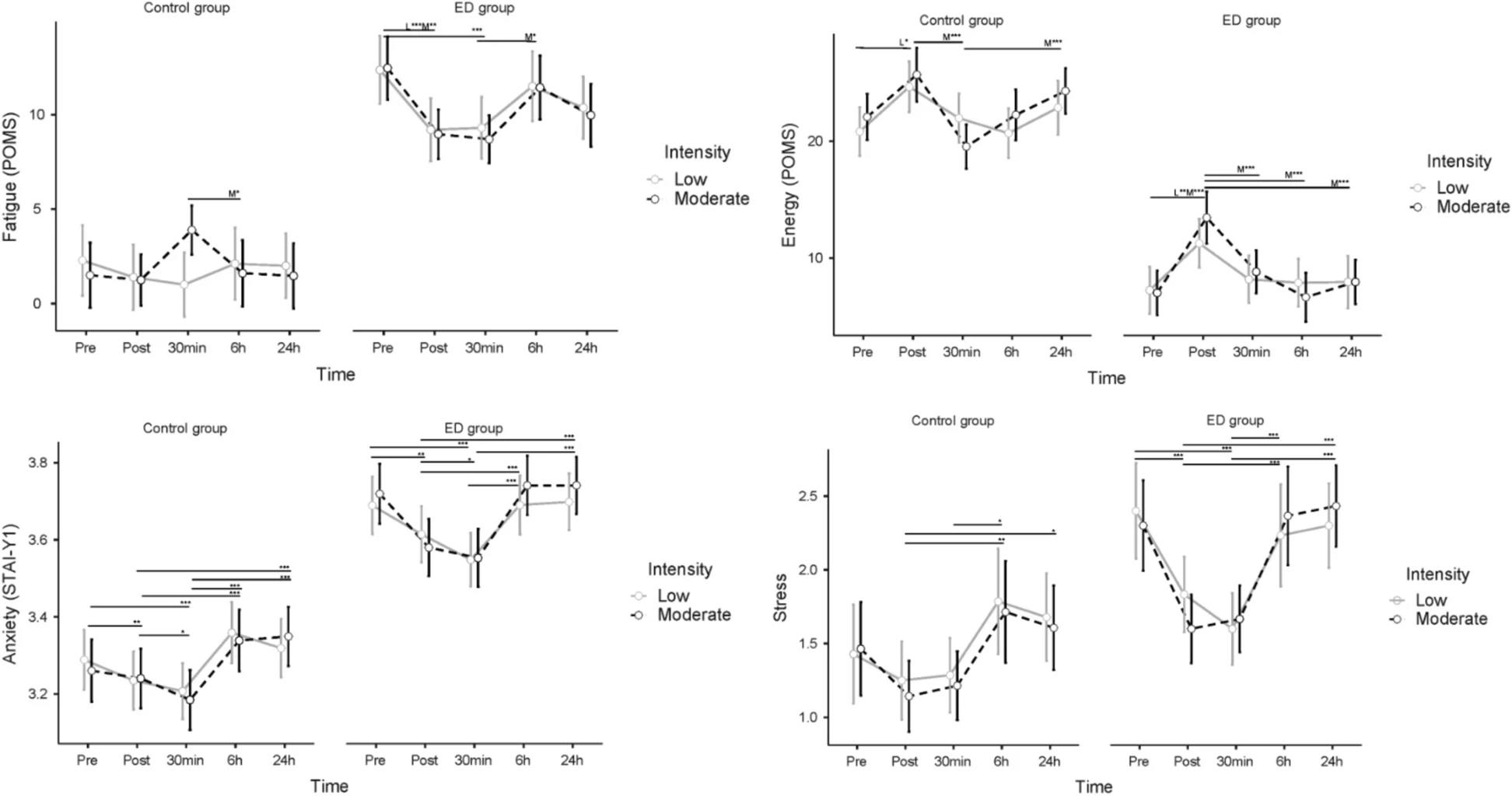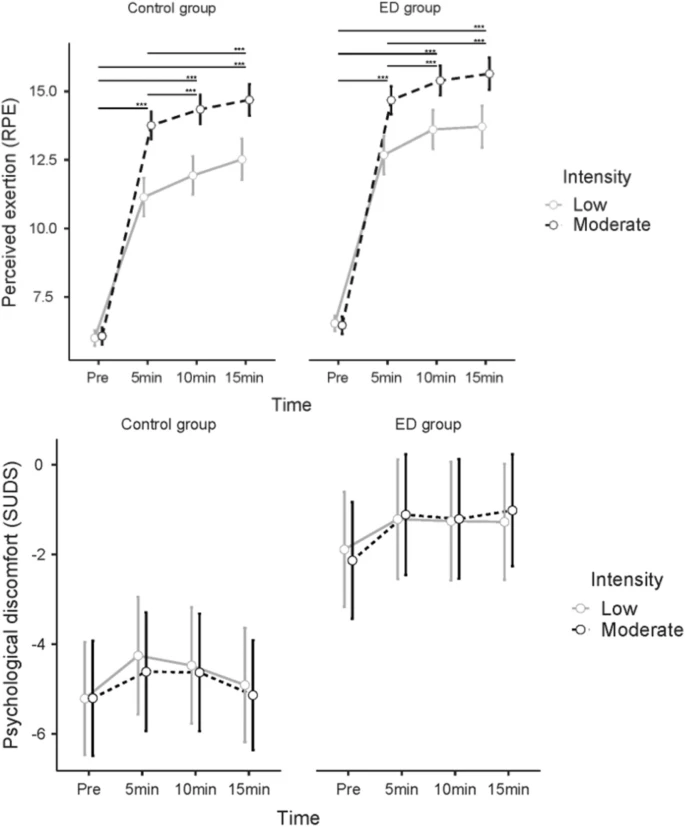Psychological responses to acute exercise in patients with stress-induced exhaustion disorder: a cross-over randomized trial
Jenny Kling, Robert Persson Asplund, Örjan Ekblom, Victoria Blom
Background
Understanding psychological responses to acute exercise, defined as a single bout of physical exercise, in clinical populations is essential for developing tailored interventions that account for the psychological benefits and challenges of exercise. Given its effectiveness in reducing symptoms in various psychological disorders, exercise should be further explored in Exhaustion Disorder ICD-10-SE: F43.8A (ED), characterized by persistent exhaustion following long-term psychosocial stress. Currently, no studies address the psychological responses to acute exercise in ED patients.
Aims
This study aims to (1) compare the psychological responses to acute exercise between ED patients and healthy controls and (2) assess response differences between low and moderate exercise intensities.
Methods
We conducted a two-armed cross-over trial comparing ED patients (n = 30) and healthy controls (n = 30). Participants completed a 22-min exercise at low or moderate intensity on a cycle ergometer, on separate occasions, in randomized order. The primary outcome was perceived fatigue (POMS); secondary outcomes included feelings of energy, anxiety, stress, exertion, and psychological discomfort, measured before, during, and up to 24 h post-exercise. Exercise effects were assessed using repeated measures analysis of variance.
Results
ED patients reported higher levels of exertion, psychological discomfort, fatigue, anxiety, and stress but lower energy throughout the trial compared to controls. Unlike controls, the ED group showed significant fatigue and stress reductions post-exercise (p < 0.05). Additionally, ED patients showed a more elevated energy after moderate-intensity exercise compared to controls (p < 0.05). Both groups experienced anxiety reductions post-exercise, with no group interactions over time. No differences were observed between pre- and 6 or 24 h post-exercise in any variables. The only intensity effect (p < 0.05) in the ED patients was a more pronounced energy decline 30 min after moderate-intensity exercise.
Conclusions
A 22-min exercise session was perceived as more strenuous by patients with exhaustion disorder (ED) and generated greater improvements in feelings of fatigue, energy, and stress compared to healthy individuals without delayed negative effects. These findings highlight the specific psychological responses in ED to exercise and can inform intervention design tailored specifically to this population.
Link | PDF (BMC Psychiatry) [Open Access]
Jenny Kling, Robert Persson Asplund, Örjan Ekblom, Victoria Blom
Background
Understanding psychological responses to acute exercise, defined as a single bout of physical exercise, in clinical populations is essential for developing tailored interventions that account for the psychological benefits and challenges of exercise. Given its effectiveness in reducing symptoms in various psychological disorders, exercise should be further explored in Exhaustion Disorder ICD-10-SE: F43.8A (ED), characterized by persistent exhaustion following long-term psychosocial stress. Currently, no studies address the psychological responses to acute exercise in ED patients.
Aims
This study aims to (1) compare the psychological responses to acute exercise between ED patients and healthy controls and (2) assess response differences between low and moderate exercise intensities.
Methods
We conducted a two-armed cross-over trial comparing ED patients (n = 30) and healthy controls (n = 30). Participants completed a 22-min exercise at low or moderate intensity on a cycle ergometer, on separate occasions, in randomized order. The primary outcome was perceived fatigue (POMS); secondary outcomes included feelings of energy, anxiety, stress, exertion, and psychological discomfort, measured before, during, and up to 24 h post-exercise. Exercise effects were assessed using repeated measures analysis of variance.
Results
ED patients reported higher levels of exertion, psychological discomfort, fatigue, anxiety, and stress but lower energy throughout the trial compared to controls. Unlike controls, the ED group showed significant fatigue and stress reductions post-exercise (p < 0.05). Additionally, ED patients showed a more elevated energy after moderate-intensity exercise compared to controls (p < 0.05). Both groups experienced anxiety reductions post-exercise, with no group interactions over time. No differences were observed between pre- and 6 or 24 h post-exercise in any variables. The only intensity effect (p < 0.05) in the ED patients was a more pronounced energy decline 30 min after moderate-intensity exercise.
Conclusions
A 22-min exercise session was perceived as more strenuous by patients with exhaustion disorder (ED) and generated greater improvements in feelings of fatigue, energy, and stress compared to healthy individuals without delayed negative effects. These findings highlight the specific psychological responses in ED to exercise and can inform intervention design tailored specifically to this population.
Link | PDF (BMC Psychiatry) [Open Access]


